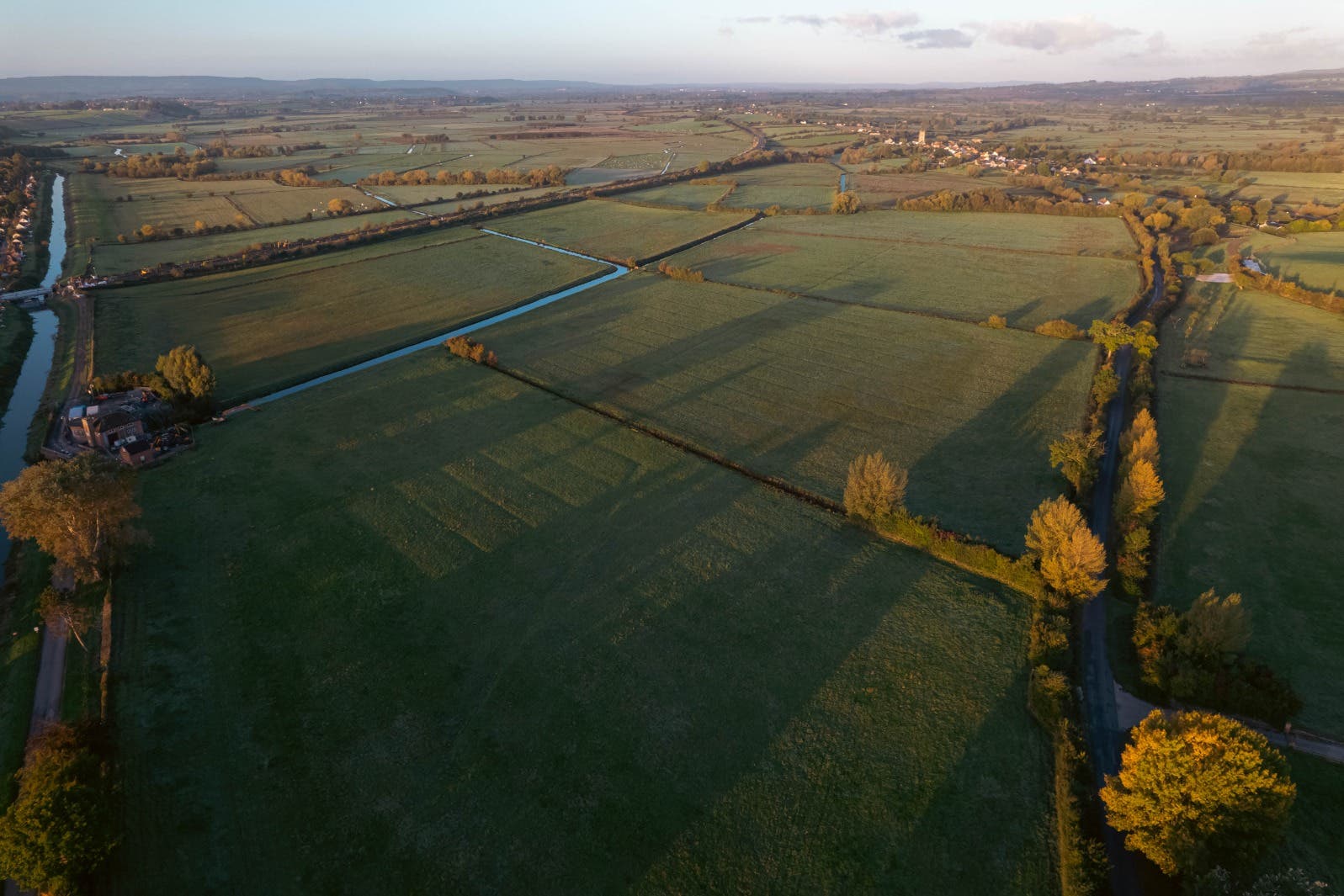Charity to rewild ‘birthplace of England’ after buying Alfred the Great site
Somerset Wildlands has purchased 73 acres of farmland below the Isle of Athelney where the king burned the cakes and dreamed of a vision of England.

Your support helps us to tell the story
From reproductive rights to climate change to Big Tech, The Independent is on the ground when the story is developing. Whether it's investigating the financials of Elon Musk's pro-Trump PAC or producing our latest documentary, 'The A Word', which shines a light on the American women fighting for reproductive rights, we know how important it is to parse out the facts from the messaging.
At such a critical moment in US history, we need reporters on the ground. Your donation allows us to keep sending journalists to speak to both sides of the story.
The Independent is trusted by Americans across the entire political spectrum. And unlike many other quality news outlets, we choose not to lock Americans out of our reporting and analysis with paywalls. We believe quality journalism should be available to everyone, paid for by those who can afford it.
Your support makes all the difference.Former farmland in the “birthplace of England” is to be rewilded for nature by a charity which has bought the land linked to Alfred the Great.
The Isle of Athelney was used by the Saxon king as a refuge during wars with the Vikings, famously burning the cakes in the marshes of the Somerset Levels before going on to victories that laid the foundations of England.
Rewilding charity Somerset Wildlands has bought 73 acres of former grazing land below Athelney, with plans to bring back some of the natural life and wildness to the area.
The site is the latest and largest in a series of “stepping stones” of natural sites throughout the region Somerset Wildlands is trying to create, with land that is left alone for nature to return, or with minimal management such as occasional grazing.
Alasdair Cameron, executive director of the charity, said the Somerset Levels were once the “Okavango Delta” of England, “a vast wild wetland that absolutely teemed with life”, and the aim was to restore some of that wildness.
The land will be largely left alone to give nature space to return, with only small interventions such as reprofiling ditches or potential reintroduction of small creatures such as harvest mice – although in the future the charity could take part in reintroductions of other wildlife.
Animals which are returning to the region already, such as beavers and sea eagles, will also be welcome, said Mr Cameron.
He told the PA news agency: “It’s amazing what happens when you just step back and let nature take the lead.
“We’ve got some other sites now that we’ve been rewilding for five or six years, and they’re fantastic – they’ve gone from simply being fields of sort of normal ryegrass or grazed land to being these thriving, buzzing spaces for life.
“In winter, they’re wet, they’re marshy, swampy, and in summer they just absolutely hum with life, the insect life is just astonishing, the spider life, the invertebrates.
“So just by stepping back and providing space for nature to take the lead we can create these wonderful habitats really from almost nothing.”
Somerset Wildlands is calling for public help for the project, with the charity needing to raise £500,000 over the next five years to pay for and manage the land.
Mr Cameron said the Somerset Wildlands project allowed wetter landscapes to return to the area, but they were working within the existing drainage system that manages the Levels, and the reaction from communities and local landowners to the scheme had been “overwhelmingly positive”.
He also said that without the swamps and marshes which once covered the area, England as we know it might not exist.
“This idea of rewilding the birthplace of England is something which can be a powerful symbol of the kind of country we can be in the future,” Mr Cameron said.
The 9th century West Saxon king Alfred the Great took refuge in the marshes after a defeat at Chippenham, before regrouping at Athelney and going on to defeat Viking leader Guthrum and laying the foundations for the first unified Kingdom of England.
Historian and writer Tom Holland said: “The island of Athelney, where Alfred burnt the cakes while dreaming that Wessex might be free, saw the entire future destiny of England hung in the balance.
“So to learn that the area around it will be restored to its former condition of wildness is the most wonderful and romantic news.”
While rewilding has been criticised in some quarters for undermining food security, Mr Cameron said a lot of land was already used for non-food purposes, from golf courses to grouse moors and growing Christmas trees.
Rewilding, nature conservation, restoration, all of those things are absolutely fundamental - we can't grow food with no ecosystem
Rewilding usually takes place on relatively unproductive land, and eating less meat and dairy would free up more land for nature, while cutting down on food waste would also save on land use.
Mr Cameron added: “All food security ultimately depends on having a functioning environment, clean water, soil and a functioning ecosystem to support it.
“Rewilding, nature conservation, restoration, all of those things are absolutely fundamental – we can’t grow food with no ecosystem.”
For more information on the project, people can visit https://www.somersetwildlands.org/